The health and wellbeing of your bearded dragon is based on meeting their nutritional needs, in order to do this you must provide them with a diverse diet which must include live feeders. You can find information on some of the most popular options available for your dragon here.
When it comes to your dragon's health and wellbeing there are many different things to consider, the different nutritional elements that make up the various options each play a key role in helping your dragon thrive. As well as the vitamins and minerals that are very important, you also have to consider other factors such as calcium and protein and how much of each goes to make up the various feeders on offer.
Even though you want to try and get your dragon's diet similar to it is as they would have in the wild,you do need to consider that they are no longer in the wild they are captive pets, as such their environment is not the same, you should never give your dragon wild caught bugs as they can carry parasites and disease.
See below for more detailed information on insects for your pet bearded dragon.
Dubia Roaches
-
Little to no noise, dubia are extremely quiet, particularly when you're comparing them with crickets.
- Hardly any to non existent smell, dubia don't smell when kept cleaned and taken care of, crickets have a strong unpleasant smell compared with Dubia.
- They breed easily, you will often find that your dubia breed on their own without you even trying, giving you some extra bugs to feed your dragon.
- They can't climb nor fly, they are unable to climb the smooth plastic on the walls of a plastic tote or cricket keeper so won't escape easily.
- They do not breed in your house if they escape.
- Dubia are easy to keep and maintain, they are also easily kept alive, they just need something to hide in like egg crates, and something to feed them like the spare cuttings from your dragon's salad to keep them alive and gut-loaded ready for when you feed your dragon.
Nutritional content of Dubia Roaches:
Extra small Dubia Roaches:
- Moisture: 71.5%
- Protein: 21.4%
- Fat: 3.1%
- Ash: 1.3%
- Fiber: 2.6%
- Calcium: 700 mg/kg
- Phosphorus: 2600 mg/kg
Extra large Dubia Roaches:
- Moisture: 65.6%
- Protein: 23.4%
- Fat: 7.2%
- Ash: 1.2%
- Fiber: 2.9%
- Calcium: 800 mg/kg
- Phosphorus: 2600 mg/kg
Hornworms (a.k.a. Goliath Worms)
Goliath Worms or Hornworms are a commonly used insect feeder and a popular choice, they can be fed as a staple feeder as long as you ensure that you feed them along with another staple insect such as Dubia Roaches, as these have a high water content.One of the most well-known features when it comes to Goliath worms is that they grow extremely quickly when under certain conditions, they can grow up to around four or five inches in length. Even when these worms have been purchased small to begin with, under the right circumstances they are able to grow to their full size in just a few days, if your dragon is small or you only have the one or two dragons you may need to feed them off quickly in order to avoid wastage. Hornworms are regularly used as a hydration boost when necessary because of their high moisture content, always take care not to overfeed them or you can end up giving your dragon diarrhea.
Nutritional information for Hornworms:
- Moisture: 85%
- Protein: 9%
- Fat: 3.07%
- Ash: n/a
- Fiber: n/a
- Calcium: 464 mg/kg
- Phosphorus: 1394 mg/kg
Waxworms
Waxworms are a feeder insect which can be fed as a staple to your pet dragon, though they should be fed alongside another less fatty staple like Dubia Roaches as they have a particularly high fat content. You shouldn't give your dragon waxworms if they are overweight, suffer from obesity or other related health issues and always try to feed no more than 2-3 waxworms to your dragon per day along with your other less fatty staples.
Waxworms are available wherever you would normally purchase your feeders, online retailers stock them regularly as do certain pet stores. Keeping them in the container they come in somewhere cool and dry will keep them alive making them relatively easy to keep.
Nutritional information for Waxworms:
- Moisture: 58.5%
- Protein: 14.1%
- Fat: 24.9%
- Ash: 0.6%
- Fiber: 3.4%
- Calcium: 243 mg/kg
- Phosphorus: 1650 mg/kg
Superworms
Superworms are an excellent feeder insect when they are fed alongside other staples, they do have a slightly high fat content, not as high as waxworms but your dragon can have ten of these per day with no problem when fed alongside another less fatty staple such as Dubia Roaches.
Commonly mistaken for giant mealworms but are in fact different, along with being nutritionally superior compared with mealworms, their outer casing is also softer, their shell is known as chitin (pronounced ky-tin) and this being softer makes them easier to digest. Because of this fact, superworms can be fed to a dragon of any age as long as they are size appropriate. Babies should have smalls, juveniles medium, and adults can have large superworms.
Nutritional information for superworms:
- Moisture: 57.9%
- Protein: 19.7%
- Fat: 17.7%
- Ash: 1.0%
- Fiber: 2.7%
- Calcium: 177 mg/kg
- Phosphorus: 2370 mg/kg
Mealworms
Mealworms are another widely used feeder insect for bearded dragons. They usually grow to be around two inches in length but the size can vary. Unlike superworms their chitin (pronounced ky-tin) is harder, this is why it's not advised to feed them to dragons below a certain size.
Mealworms should always be fed as part of a assorted diet of softer more nutritional staples, you can feed up to five or six a day for adult dragons, but for younger dragons they should be avoided.
Nutritional information for Mealworms:
- Moisture: 61.9%
- Protein: 18.7%
- Fat: 13.4%
- Ash: 0.9%
- Fiber: 2.5%
- Calcium: 169 mg/kg
- Phosphorus: 2950 mg/kg
Crickets
Crickets have always been a popular feeder insect for Bearded Dragons, nutrition wise they offer a decent amount of protein and calcium, they are also very available at pet stores and to a lesser extent online retailers, never buy crickets from bait shops to feed your dragon they are known to carry diseases and parasites more often than when obtained from somewhere that crickets are bred for feeders.
Certain parts of the crickets can be difficult for dragons to digest such as their hind legs, so when feeding them always provide adequate hydration.
One of the negative aspects about crickets is that they are notoriously hard to keep, as well as jumping out of the container whenever you open it, they can be very noisy, have an unpleasant smell, and they are easily killed. The are known to be more likely to be carriers of parasites than other feeders, unlike Dubia Roaches which can carry parasites but they are generally cleaner than crickets, if you choose to feed crickets you need to ensure that you are getting your Bearded Dragon a regular fecal exam every 6 months, unless there are signs of parasites such as lethargy or loss of appetite, the you would need to arrange a checkup and fecal done by a licensed vet.
Nutritional information for crickets:
- Moisture: 77.1%
- Protein: 15.4%
- Fat: 3.3%
- Ash: 1.1%
- Fiber: 2.2%
- Calcium: 275 mg/kg
- Phosphorus: 2520 mg/kg
Black Soldier Fly Larvae (Nutrigrubs)
Black Soldier Fly Larvae are an excellent source of protein which makes them a good feeder insect, they are also known for their high calcium content. If a dragon is needing a calcium boost, then BSFL make a great option, they can be used in place of a powder calcium supplement without D3, you would still need to offer a calcium supplement with D3.
Due to their small size and maggot like appearance they are best offered to younger dragons who will appreciate them, when used as a feeder for adult dragons they can be inconvenient, due to their small size you may find that your bigger dragons are not interested and the quantities that you would have to buy and ensure that they consumed would be impractical. They simply need to be kept in the container that they arrive in, and not offered any food, so they are pretty easy to take care of.
Nutritional information for Black Soldier Fly Larvae:
- Moisture: 61.2%
- Protein: 17.5%
- Fat: 14%
- Ash: 3.5%
- Fiber: 3%
- Calcium: 9340 mg/kg
- Phosphorus: 3560 mg/kg
Butterworms
Butterworms another feeder insect that resembles a sort of maggot, they look almost the same as Black Soldier Fly Larvae but they are larger, they are a good source of protein and calcium but not as high as BSFL.
Because of their bigger size they make a more tempting feeder for all types of dragons but they can be a little hard to find on occasion.
Nutritional information for Butterworms:
- Moisture: 60.2%
- Protein: 15.5%
- Fat: 29.4%
- Ash: 0.8%
- Fiber: 1.4%
- Calcium: 125 mg/kg
- Phosphorus: 2250 mg/kg
Silkworms
Silkworms are an occasionally used feeder insect, they offer an acceptable amount of calcium but are low in protein for your dragon, but they do have a soft outer shell which makes it easier for them to digest.
Silkworms can be difficult to find, they usually aren't found in pet stores that I have ever seen but can be found online at specialized retailers, which makes them impractical as an everyday feeder.
Nutritional information for silkworms:
- Moisture: 82.7%
- Protein: 9.3%
- Fat: 1.1%
- Ash: 1.1%
- Fiber: 1.1 %
- Calcium: 177 mg/kg
- Phosphorus: 2370 mg/kg

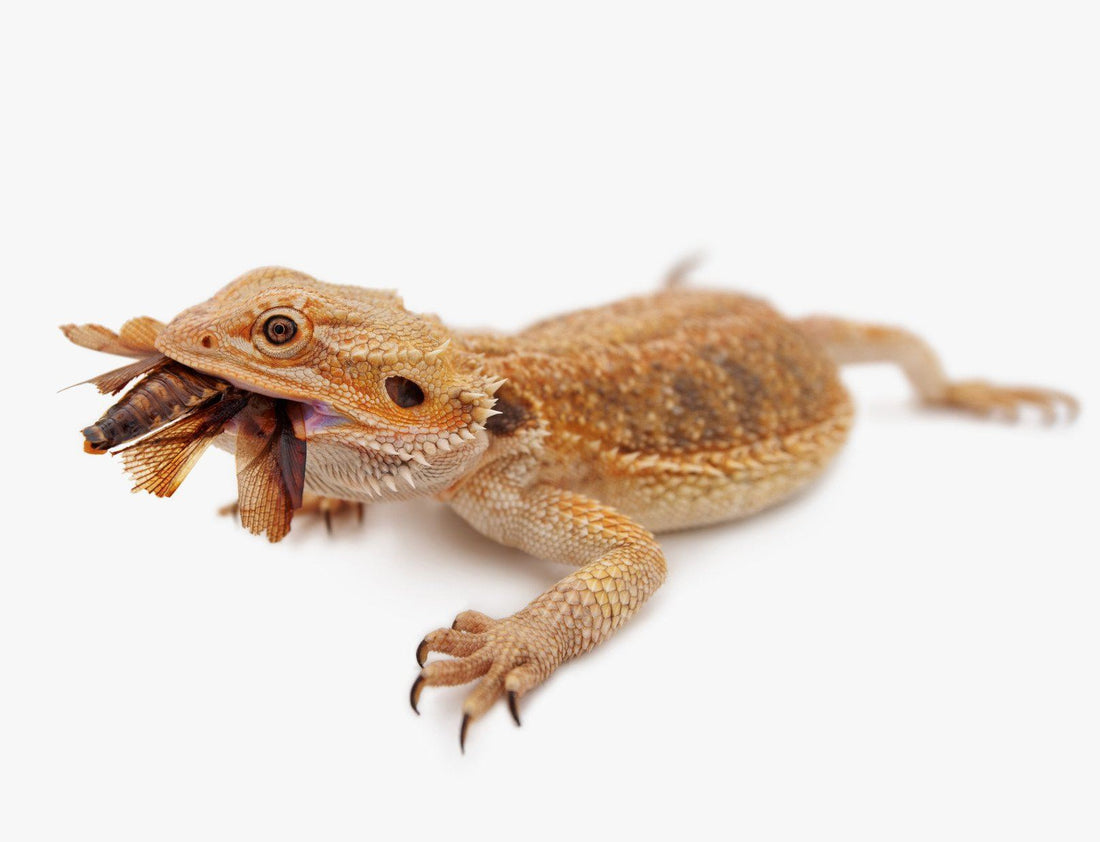
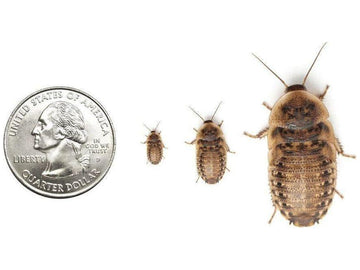
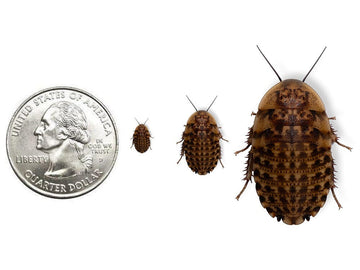
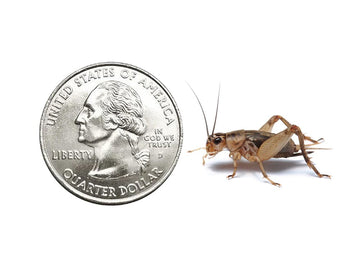
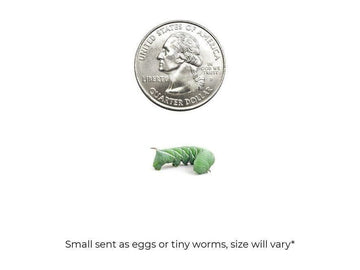
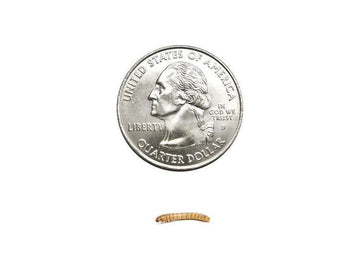
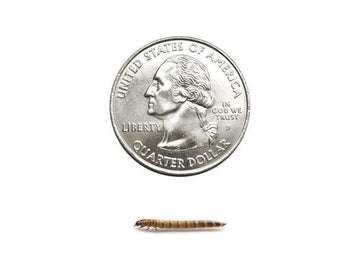
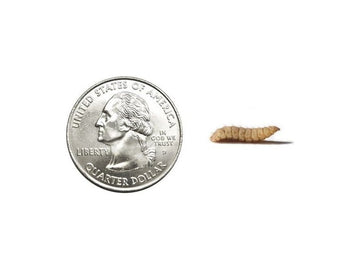
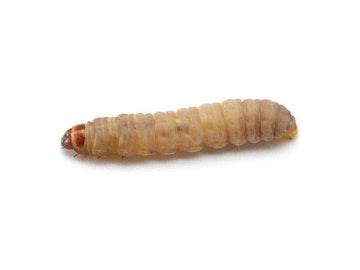


4 comments
Hi Clayton, please contact our customer service directly in order to get your issue resolved. Call/text us as (888) 83-DUBIA or send an email to orders@dubiaroaches.com.
Hi Janet, please contact our customer service directly in order to get your issue resolved. Call/text us as (888) 83-DUBIA or send an email to orders@dubiaroaches.com.
Would like a call from someone 502-939-2901 Monday thru Saturday thanks….
Your site malfunctions and won’t let me order the auto shipping